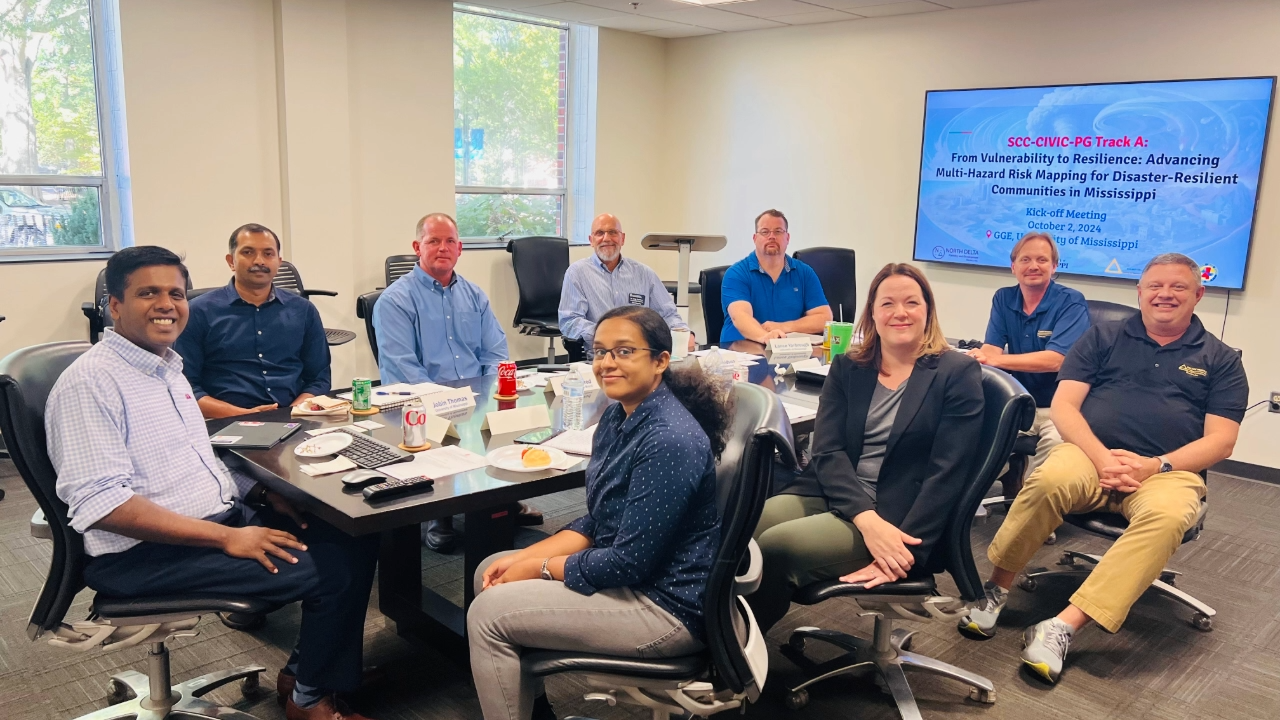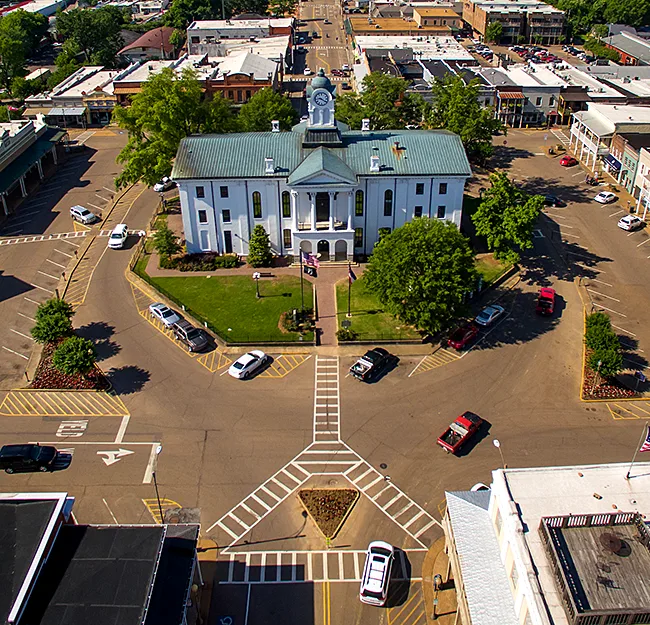About the Department of Geology & Geological Engineering
We aim to create well-rounded geologists and engineering professionals
- Home
- Departmental Directory
- Engineering
- Department of Geology and Geological Engineering
- About | Geology & Geological Engineering

Come Join Us!
We’ll help you develop your communications, critical-thinking, teamwork and leadership skills, which are vital in today’s world. You’ll be able to gain real world experience through internships and co-ops in your area of expertise. You can participate in engineering professional societies and other interest groups at the school.
Plus, by engaging in research, you can work with national and international specialists to tackle engineering grand challenges.
We’ve got a great network of alumni. You’ll be able to learn from their experience – from what it’s like as a starting professional to how they’ve achieved success in their work life. You’ll see them in classroom settings, at small group lunches and at career fairs. And when you graduate, you become part of a network that is dedicated to seeing you succeed. Are you ready to live your legacy?
We have a very low student-to-faculty ratio and our students constantly say how their professors make time to help them with their classwork, projects and future goals. We are dedicated to educating the state of Mississippi and beyond. Persevering through all to grow toward something bigger. Because we’re rebels in our own way.
The demand for geoscientists in a range of employment opportunities continues to expand and outpace the number of students preparing for geoscience careers. The American Geoscience Institute (AGI) using U.S. Bureau of Labor Statistics data estimates that by 2028, there will be a shortage of 35,000 geoscientists (FTEs, full time equivalents), and geoscience employment will increase over the next decade by 4–8%, depending on the specific occupation.
Our Degree Offerings
UG
Study the earth, the materials of which it is made, their structure and the processes acting upon them
- Oxford
UG
Combine the knowledge of earth science with engineering principles to solve human problems
- Oxford
GRAD
Explore our Master of Science in Engineering Science with emphases in Environmental Engineering, Geology, Geological Engineering, and Hydrology and Computational Hydroscience.
- Oxford
GRAD
Pursue a Doctor of Philosophy in Engineering Science with advanced, research-intensive study in Environmental Engineering, Geology, Geological Engineering, or Hydrology and Computational Hydroscience.
- Oxford
Geology and Geological Engineering Faculty
Thomas Oommen
- Chair and Professor of Geology and Geological Engineering
Jordan Burkey
- Instructor in Geology and Geological Engineering
Ron Counts
- Associate Professor of Geology and Geological Engineering and Associate Director of Mississippi Mineral Research Institute
Gregg Davidson
- Professor of Geology and Geological Engineering
Jennifer Gifford
- Associate Professor of Geology & Geological Engineering
Robert Holt
- Professor of Geology & Geological Engineering
Noha Ismail
- Postdoctoral Research Associate
Leonardo Macelloni
- Director of Mississippi Mineral Resources Institute and Center for Marine Resources and Environmental Technology and Associate Professor of Geology and Geological Engineering
Elsie Okoye
- Adjunct Instructor in Geology and Geological Engineering
Brian Platt
- Associate Professor of Geology & Geological Engineering
Julie Retrum
- Lecturer in Geology and Geological Engineering
Jobin Thomas
- Postdoctoral Research Associate
Inoka Widanagamage
- Instructional Associate Professor of Geology & Geological Engineering
Lance Yarbrough
- Associate Professor of Geology and Geological Engineering
Geology & Geological Engineering Staff
Mandy Dowdy
- Administrative Coordinator I
Sherra Jones
- Operations Coordinator II
Maxwell Pizarro
- Lab Coordinator - Geology and Geological Engineering
Meet our Emeriti Faculty

Richard Major
Career Paths in Geology and Geological Engineering
Engineering Geologists apply geologic principles to civil and environmental engineering. They investigate geological factors that affect engineering structures such as buildings, bridges, airports and dams. They offer advice on major construction projects and help with other projects, such as environmental cleanup and reducing natural hazards.
Environmental geologists work to solve problems with waste disposal, pollution, urban development and hazards such as flooding and erosion. Environmental hydrologists identify the extent of groundwater contamination problems and design a system to remove the contamination
Geotechnical engineers work for consulting firms that specialize in environmental remediation and site assessment. They evaluate soil and rock conditions to ensure the safety and stability of structures, and help design foundations and solutions to mitigate ground-related hazards.
Petroleum geologists are involved in the exploration and production of oil and natural gas. They analyze subsurface geology to locate energy resources, guide drilling operations, and assess the potential of reservoirs.
Mapping and resource assessment geologists work for state or federal government agencies. Their work supports land use planning, mineral exploration, and hazard assessment.
Consulting engineers or geologists assess hazard potential due to an earthquake, flood, landslide or unfavorable site geology. They provide critical assessments to guide safe land development and infrastructure planning.
Hydrologists study the movement and quality of water to identify reliable sources for community water supply. They assess groundwater and surface water systems to support sustainable water management.
Marine geologists and oceanographers study the geology of the ocean floor and continental shelves. Their work helps us understand underwater processes, resource deposits, and environmental changes in marine environments.
Government inspectors oversee construction projects in challenging geological terrains. They ensure compliance with safety standards and evaluate site conditions to prevent structural and environmental issues.
Research scientists at university-based institutions conduct advanced studies in geology and related fields, contributing to new discoveries and innovative solutions for Earth science challenges.
Bankers specialize in evaluating natural resources to assess their value as loan collateral, helping finance projects in mining, energy, and land development.
Attorneys focus on natural resource and environmental law, advising clients on regulations, compliance, and legal issues related to land use and conservation.
Secondary school teachers and university professors educate students in a wide range of geological subdisciplines, inspiring the next generation of geoscientists and engineers.
Our Community


A Place That Ever Calls
Located 70 miles from Memphis and surrounded by the natural beauty of Northern Mississippi, Oxford boasts thriving music, art, and literary scenes along with great restaurants. UM's athletics provide many opportunities to watch and participate in sports—and one of the world's best tailgating parties.
With everything Oxford has to offer, it's no wonder USA Today named Oxford as one of the Top Six College Towns in the Nation.
Come see why.
